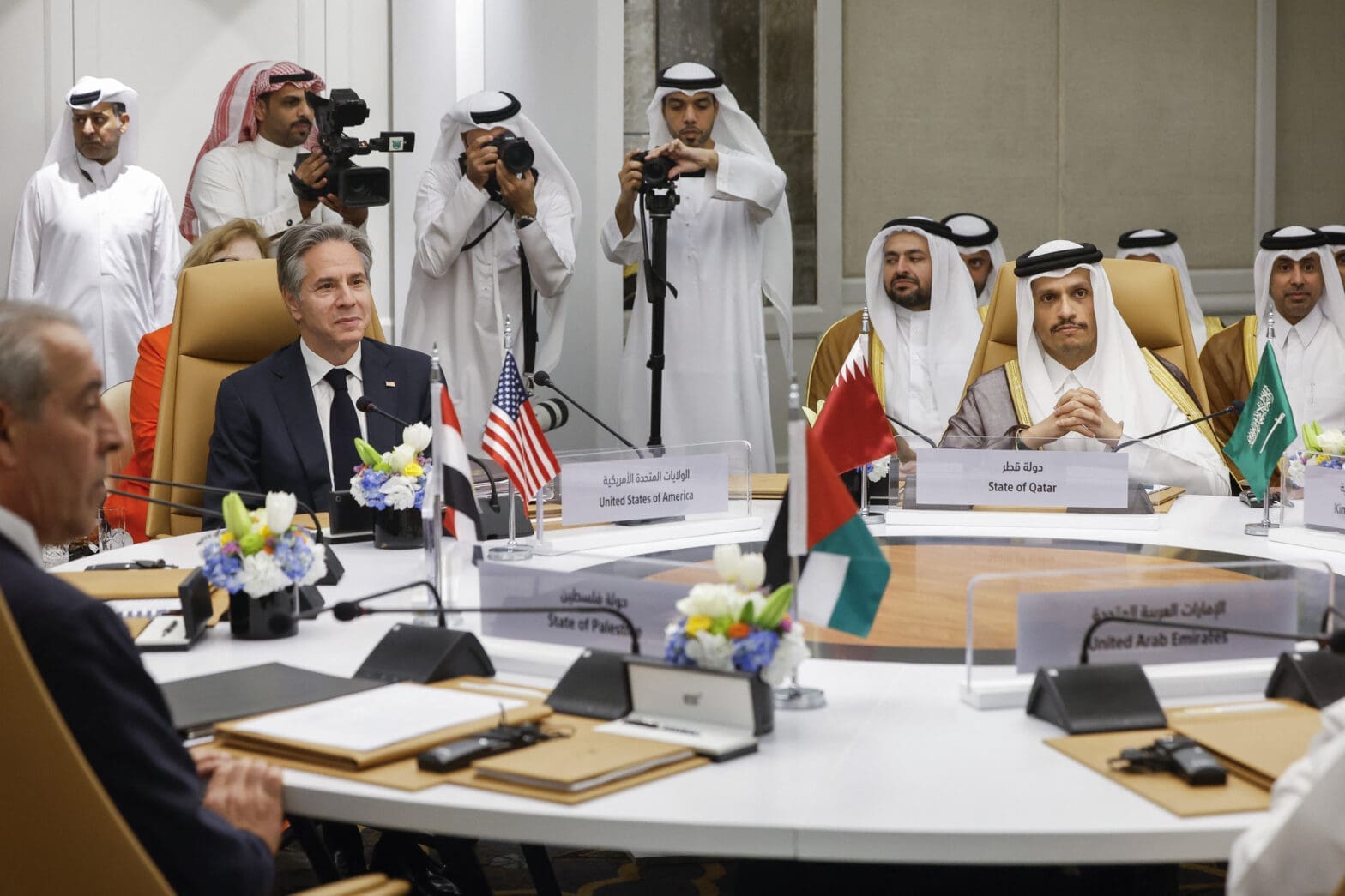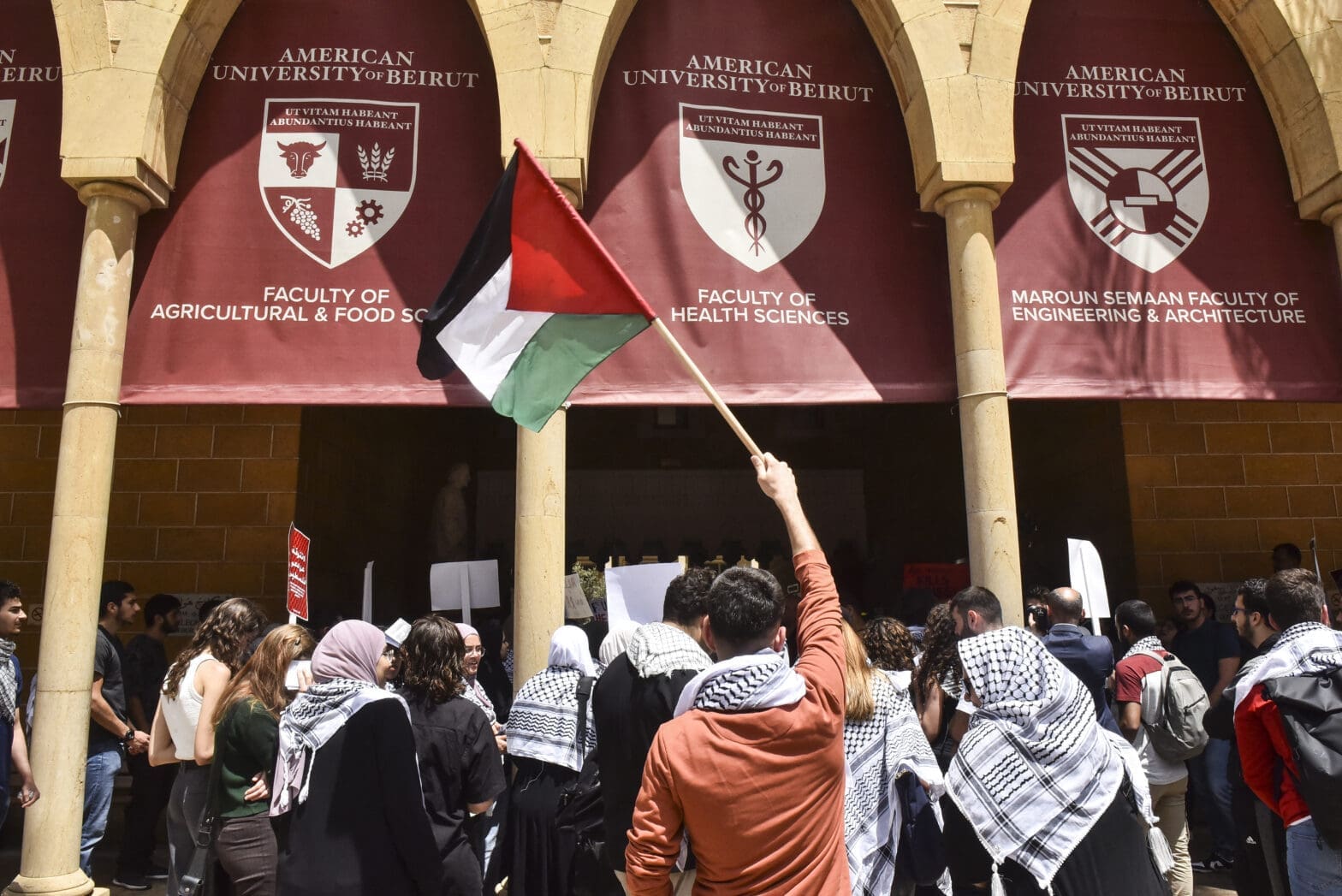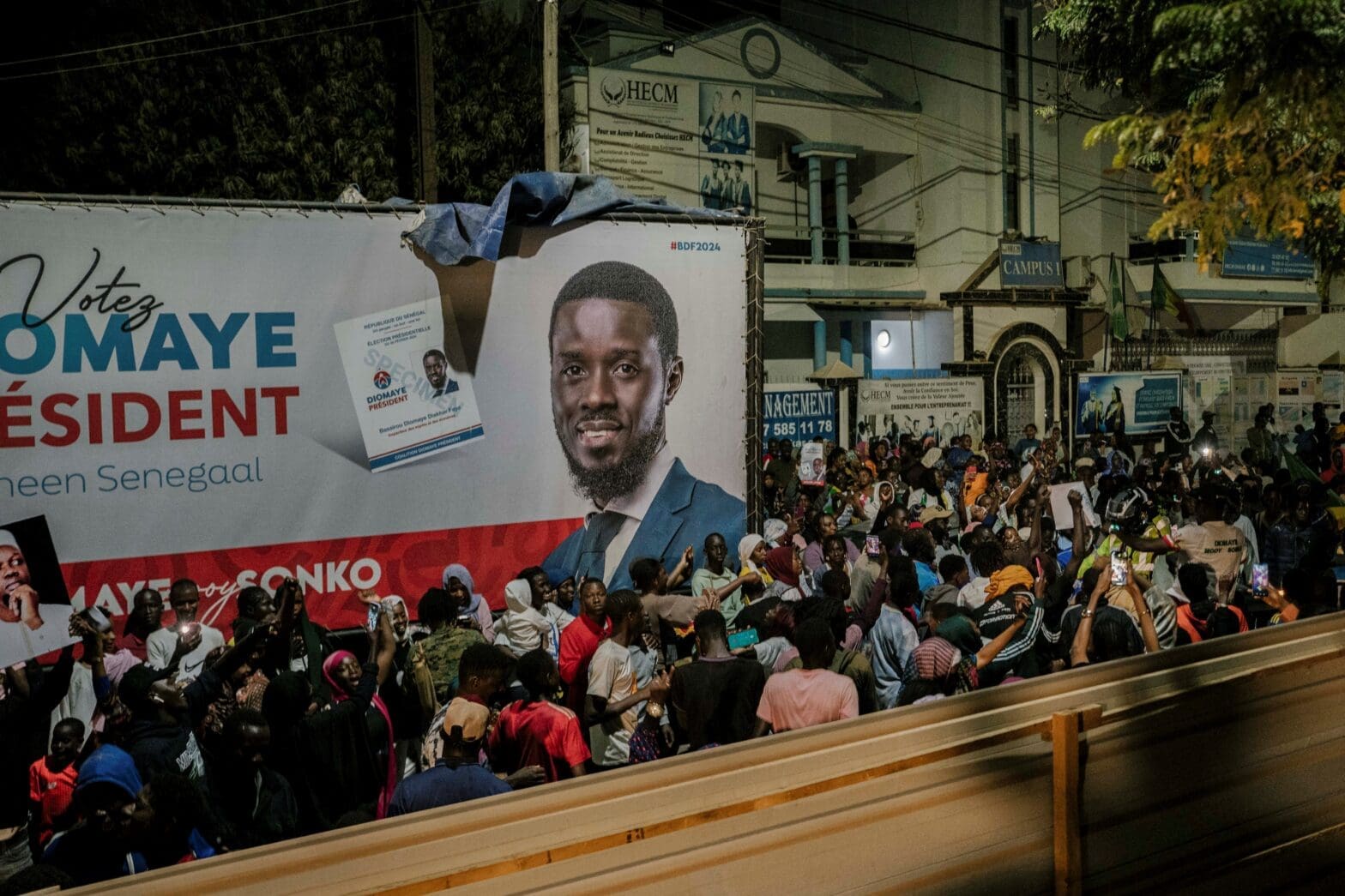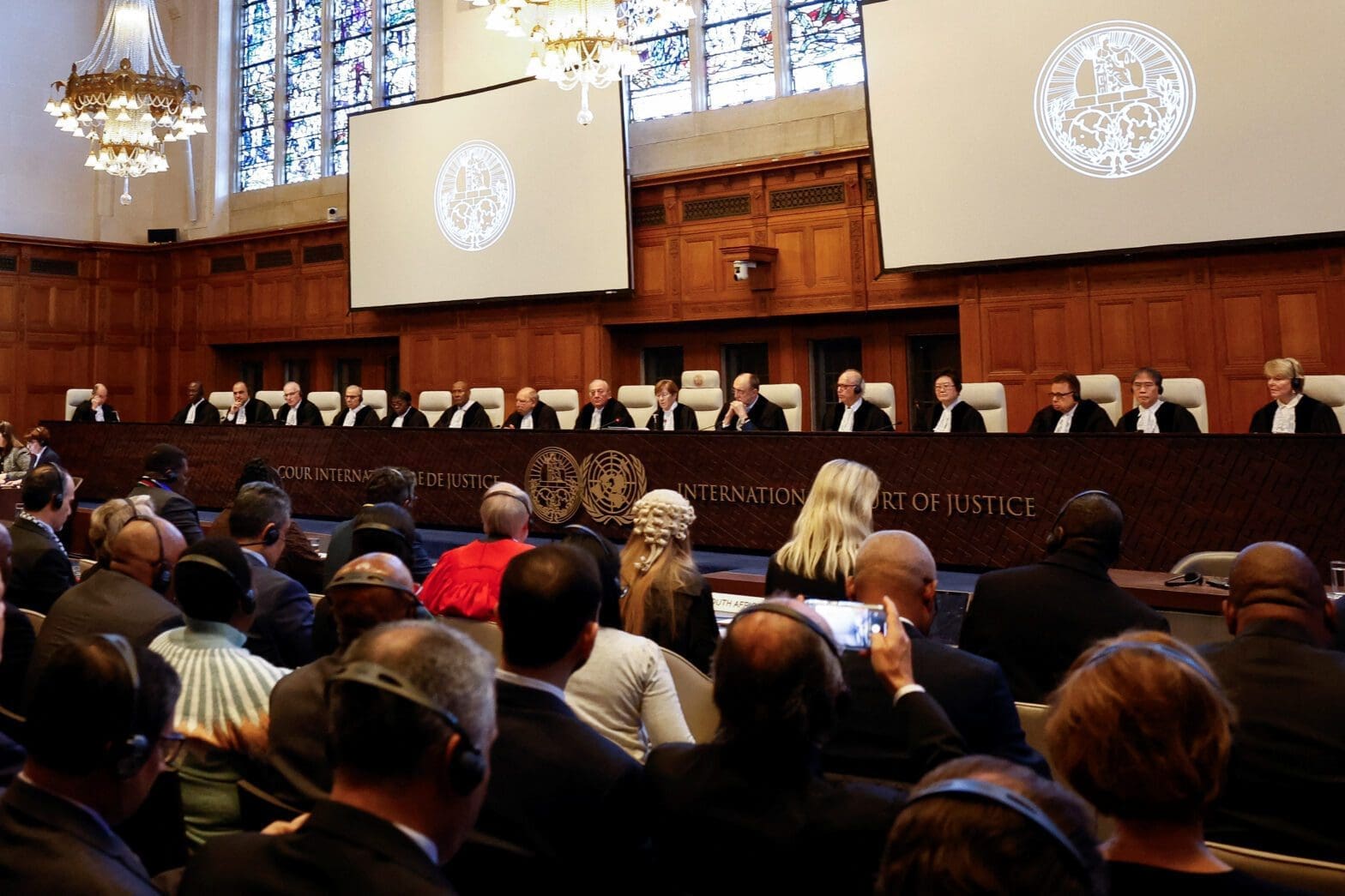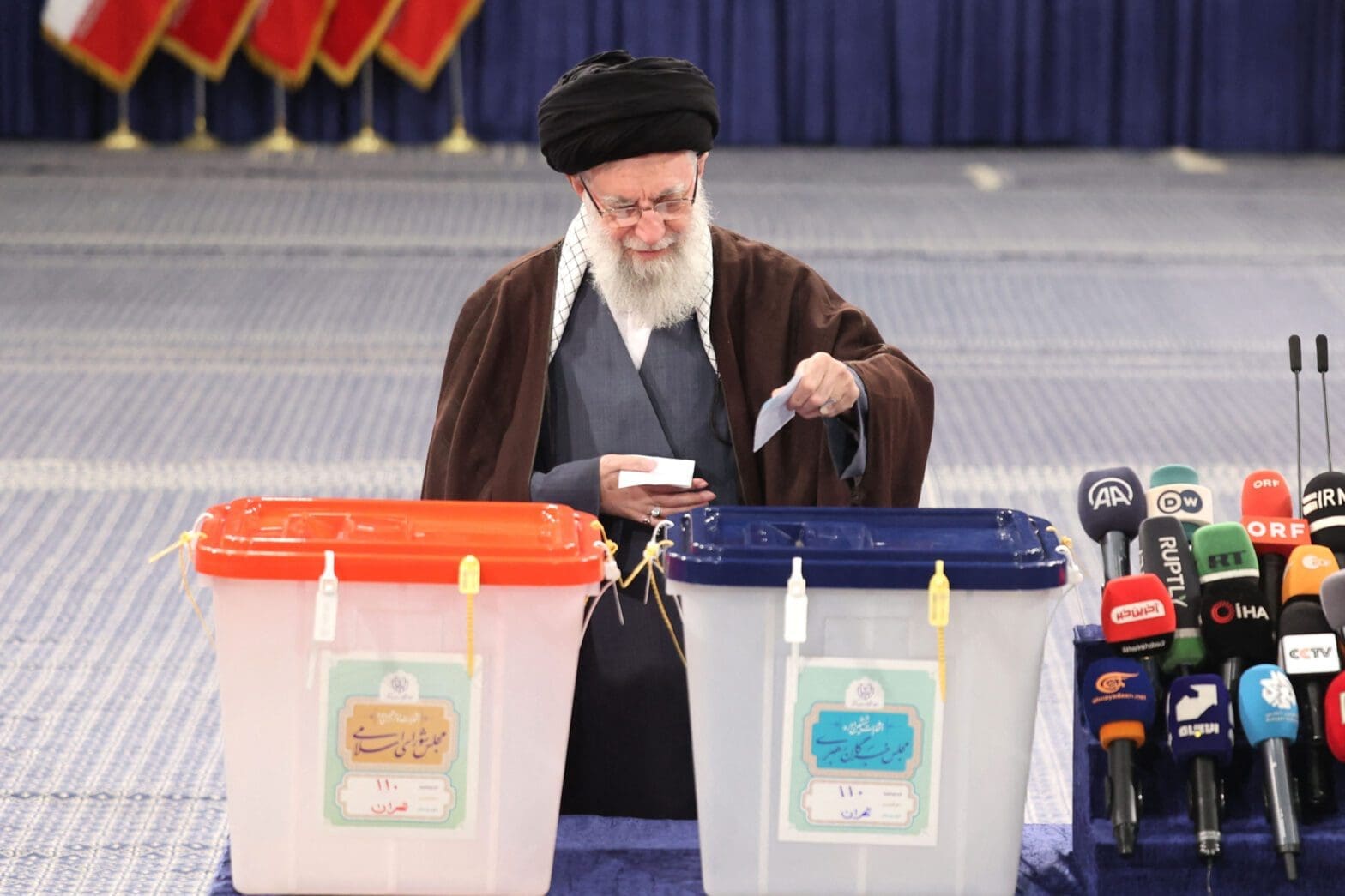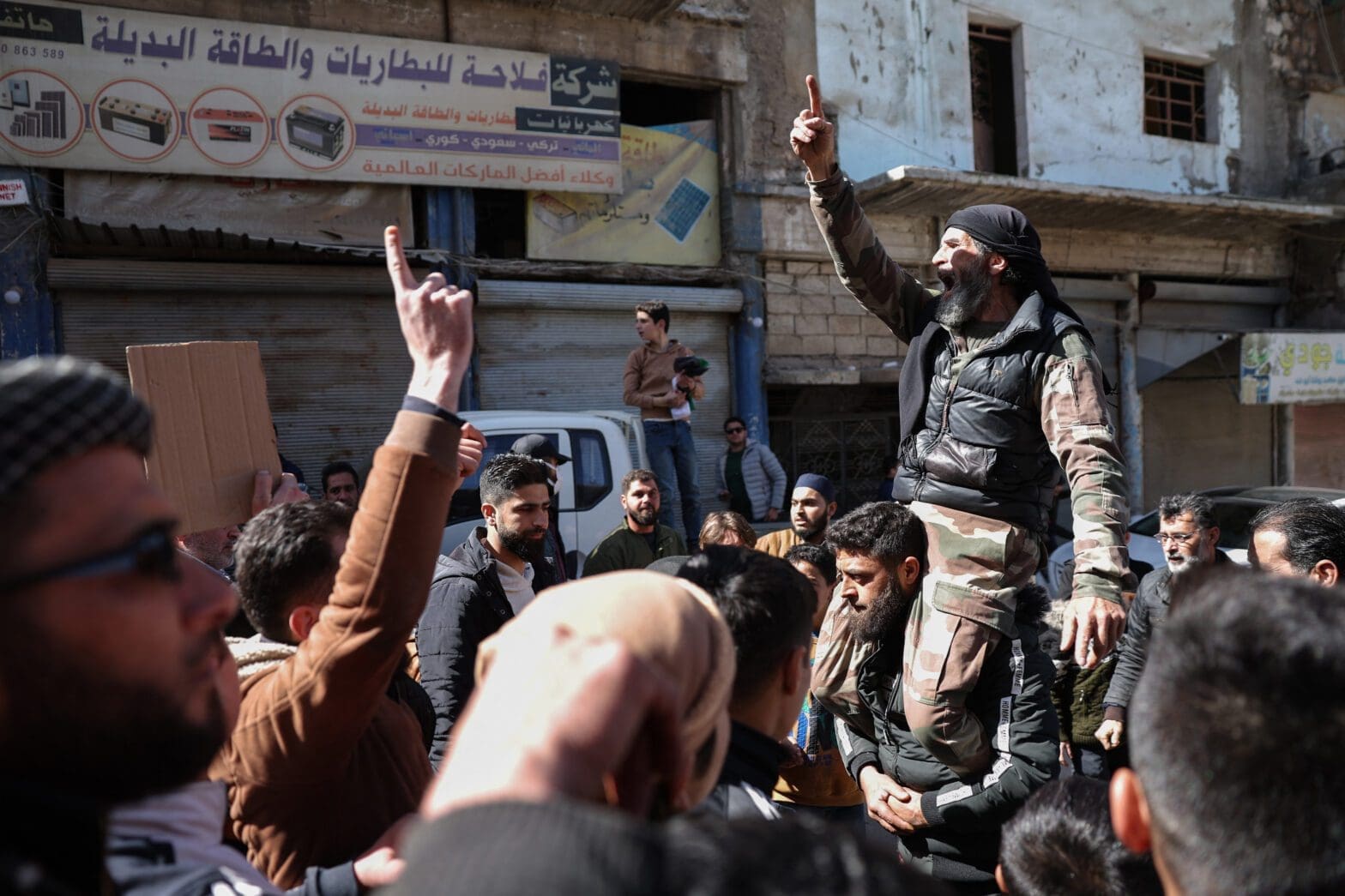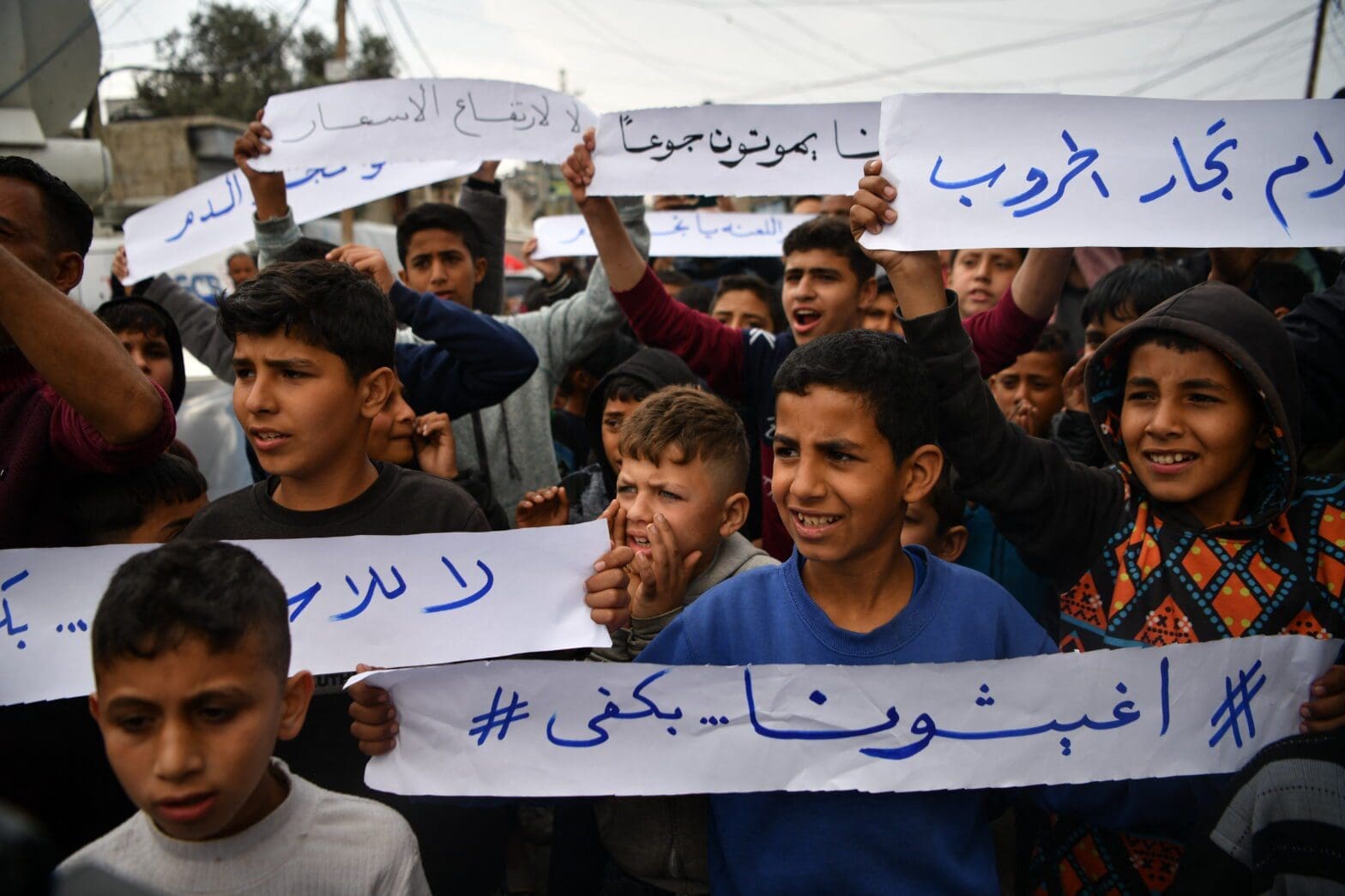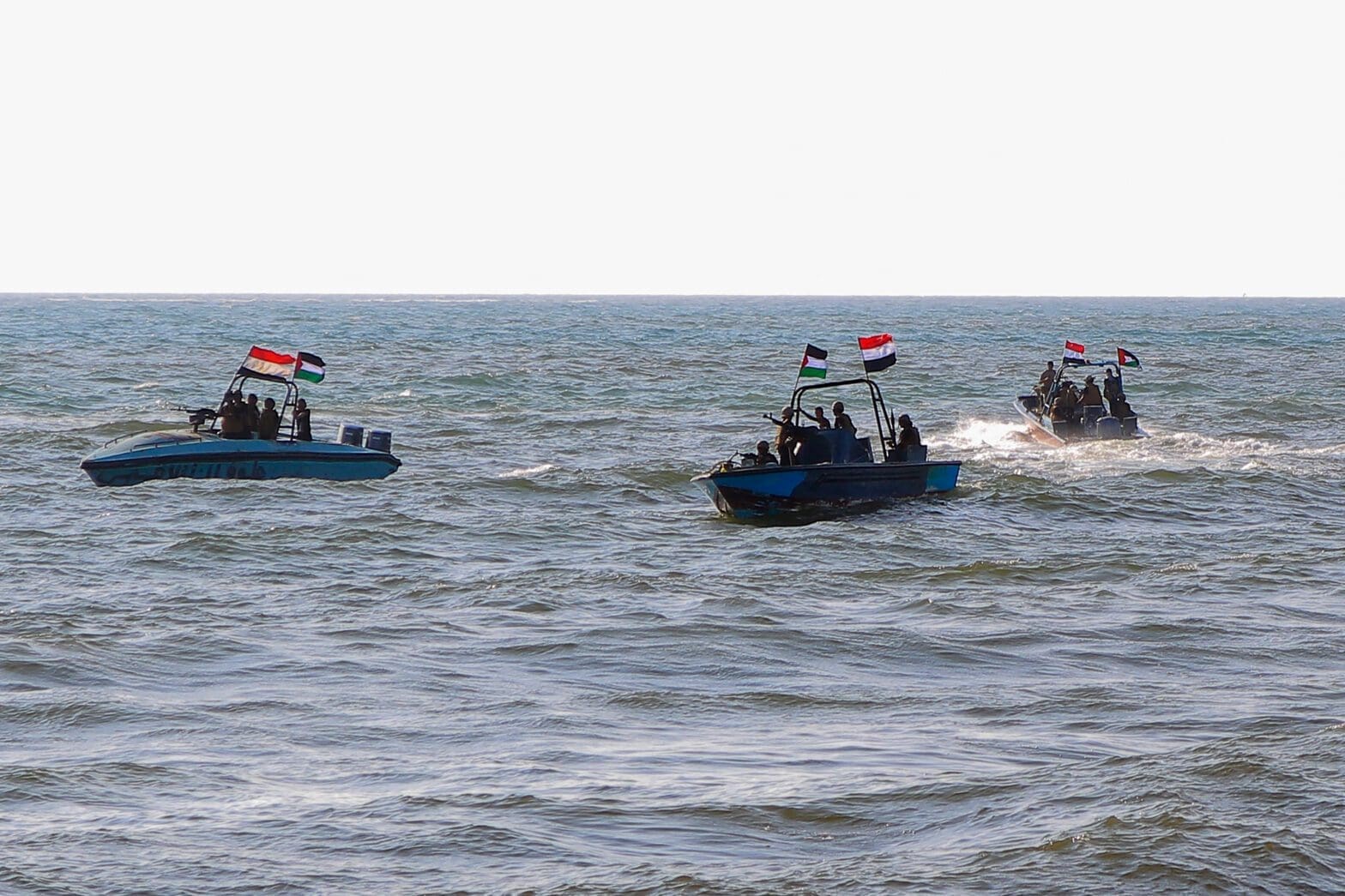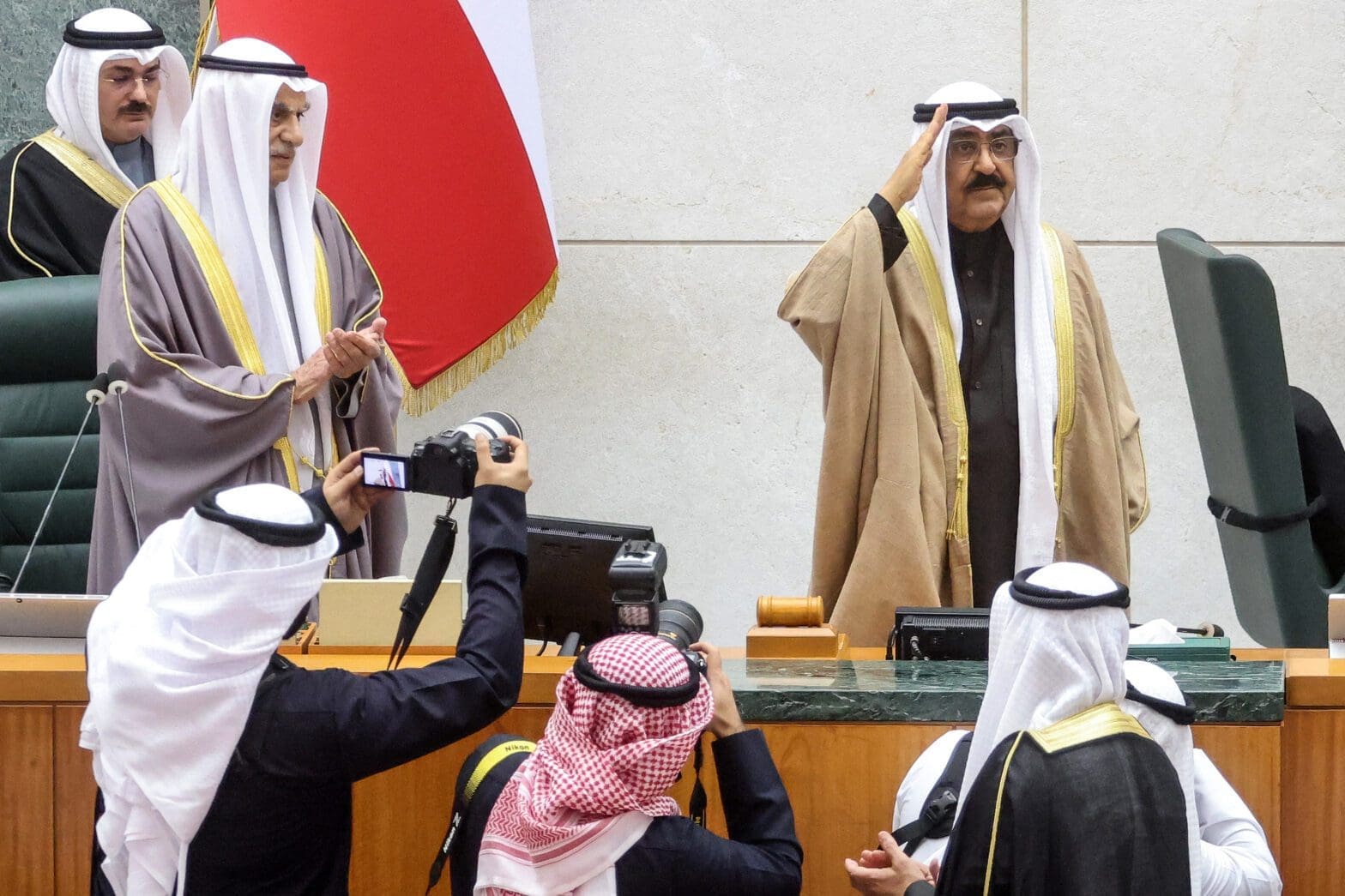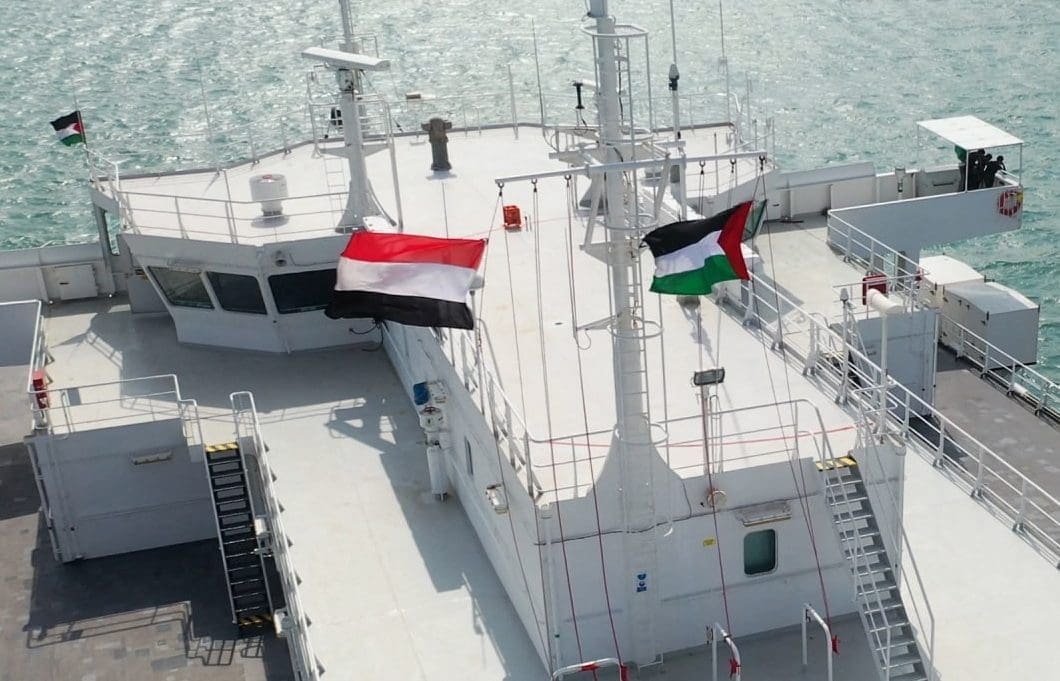As Israel carries out the latest stage of its devastating military assault on Gaza in the southern city of Rafah, pressure has mounted on its relationship with the United States. Yet it is in the West Bank where the Biden administration’s stalwart support for Israel’s right-wing government may face its most difficult test. A recent… Continue reading To Strengthen the Palestinian Authority, Stabilize Its Finances
Blog Category: Home Featured Blog
Iran’s Snap Election Casts a Long Shadow Over the State
As Iran heads to a snap election for a new president, questions over the government’s political legitimacy are once again surfacing. After the shock death of President Ebrahim Raisi in a helicopter crash on May 19, along with the foreign minister and a number of other officials, a new election to find his replacement was… Continue reading Iran’s Snap Election Casts a Long Shadow Over the State
EU Aid for Syrian Refugees: Addressing Ongoing Needs in Türkiye and Lebanon
In late May of this year, the European Union and other international donors pledged €7.5 billion ($8 billion) in grants and loans to support millions of Syrians displaced within and beyond the country’s borders by a devastating 13-year civil war. The seemingly vast sum pledged at the Brussels conference on “Supporting the future of Syria… Continue reading EU Aid for Syrian Refugees: Addressing Ongoing Needs in Türkiye and Lebanon
The Importance of Diplomacy: How Qatari Mediation is Impacting Gaza
The ongoing Gaza war has showcased Qatar’s strengths as a mediator. Although Doha may not appear to be a major international player at first glance, it has nonetheless proven to be an invaluable actor in the United States’ attempts to end the war. Despite its small size and population, Qatar plays an outsized role… Continue reading The Importance of Diplomacy: How Qatari Mediation is Impacting Gaza
A Succession of Coups Leaves the Sahel Prey to International Rivalries
When Niger’s military rulers decided to put an end to the presence of American armed forces on the country’s territory in May, the move was met with dismay in Washington. Niger, in the heart of the Sahel region south of the Sahara Desert, is host to two major bases the United States had long used… Continue reading A Succession of Coups Leaves the Sahel Prey to International Rivalries
The (Surprising) Silence of Arab Universities on Palestine
Since mid-April 2024, western academic institutions, including elite American universities, have been at the forefront of protests for Palestine. Yet, their Arab counterparts have surprisingly remained silent. The disengagement is particularly noteworthy considering that Middle Eastern universities have historically been the hotbeds of protests and engagement concerning the Palestinian cause. This absence is also at… Continue reading The (Surprising) Silence of Arab Universities on Palestine
Another Catastrophe Hangs Over Darfur
Two decades after mass atrocities for which justice has never been served, the capital of North Darfur teeters on the brink once again. El-Fasher is the last of five state capitals in Sudan’s vast Darfur region that has not fallen to the paramilitary Rapid Support Forces (RSF) in the course of the country’s war. Vulnerable to… Continue reading Another Catastrophe Hangs Over Darfur
Interview: Unpacking Kuwait’s Parliament Dissolution
Kuwait’s Emir Sheikh Meshal al-Ahmad al-Sabah, who came to power late last year, recently nominated Sheikh Sabah al-Khalid al-Sabah as crown prince and appointed a new cabinet. This came after the leader’s decision to dissolve the country’s National Assembly and institute a four-year suspension of several constitutional articles following an election that saw minimal changes… Continue reading Interview: Unpacking Kuwait’s Parliament Dissolution
The Middle East in the Wake of October 7: Interview with Tarik M. Yousef Marking 100 Afkār Posts
We at Afkār are delighted to announce that we have reached a new milestone, our 100th post! To mark the occasion, we have recorded and transcribed a special interview with the Director of the Middle East Council on Global Affairs, Tarik M. Yousef. The in-depth interview was conducted by our editor, Omar H. Rahman, and… Continue reading The Middle East in the Wake of October 7: Interview with Tarik M. Yousef Marking 100 Afkār Posts
What Does President Raisi’s Death Mean for the Islamic Republic?
On May 19, Iranian President Ebrahim Raisi, accompanied by his Foreign Minister Hossein Amirabdollahian, was tragically killed in a helicopter crash. The helicopter was en route to an event in the mountainous East Azerbaijan province when it encountered severe weather conditions, leading initially to what was described as “a hard landing.” Despite prompt rescue efforts,… Continue reading What Does President Raisi’s Death Mean for the Islamic Republic?
Economic Diversification is the GCC’s Top Priority
It is a paradoxical truth that nations highly dependent on natural resources tend to be poor economic performers. Such countries are exposed to ongoing adverse shocks, including price jolts, volatile demand and supply, and natural disasters. These factors can stir up macroeconomic instability and higher economic risks – otherwise known as the “natural resource curse”. … Continue reading Economic Diversification is the GCC’s Top Priority
The Development Road Project – Council Views
Following a momentous visit to Iraq by Turkish President Recep Tayyip Erdogan, Türkiye, Iraq, Qatar, and the United Arab Emirates signed an initial agreement to collaborate on the Development Road project. The $17 billion project envisages region-wide transportation routes and infrastructure that would transform Iraq’s infrastructure into a transit hub connecting Asia and Europe over… Continue reading The Development Road Project – Council Views
Senegal’s Election and Africa’s Future
Although Senegal’s GDP is dwarfed by that of the West African giant Nigeria, this small country with an open economy plays an outsize role on the continent, owing to its status as a “maturing democracy.” Senegalese pride themselves for having never suffered a coup since achieving independence from France in 1960. That record stands in… Continue reading Senegal’s Election and Africa’s Future
What Next for the War Between Iran and Israel?
The Islamic Republic of Iran’s direct attack against Israel was the first of its kind since the country’s clerical rulers seized power in 1979. In a major show of force, Iran launched more than 300 drones and missiles from its own territory—an unprecedented break with its past approach. Israel and its allies, including the United… Continue reading What Next for the War Between Iran and Israel?
Security Sector Reform: An Exercise in Futility?
Since the onset of the post-October 7 regional escalation, the ascension of militia groups has had increasingly visible implications for global security. This has been highlighted by the Houthi attacks in the Red Sea, which have had far-reaching consequences for the global economy. However, the Houthis—an armed political movement controlling most of Yemen—represent only one… Continue reading Security Sector Reform: An Exercise in Futility?
Iran-Israel Tensions Emerge from the Shadows – Council Views
On April 13, Iran attacked Israel directly for the first time in its history, retaliating for Israel’s killing of three top Iranian commanders in Damascus on April 1. Israel has since responded with a limited strike, and the United States and its allies imposed expanded sanctions on Iran. Middle East Council scholars examine the implications… Continue reading Iran-Israel Tensions Emerge from the Shadows – Council Views
Can BRICS Really Drop the Dollar?
The new year saw four of the largest economies in the Middle East and North Africa join the BRICS economic union. The accession by Egypt, Iran, Saudi Arabia, and the United Arab Emirates represents a strategic step away from the United States and Europe. For the new BRICS members, it could open new opportunities for… Continue reading Can BRICS Really Drop the Dollar?
Interview: Kuwait’s First Elections under the New Emir
1. Kuwait has faced political gridlock, resulting in four elections over the past four years and deteriorating social services. In this month’s parliamentary elections, the opposition maintained a 29-seat majority in the 50-member body, closely resembling the previous year’s outcome. What do these results indicate for Kuwait’s political landscape and potential reforms? Hope springs eternal,… Continue reading Interview: Kuwait’s First Elections under the New Emir
Washington’s Dilemma over Hamas in Qatar
“Tell Hamas that they must deliver on a hostage and ceasefire deal that would halt the war in Gaza or risk getting kicked out of the Qatari capital of Doha.” That was U.S. Secretary of State Antony Blinken’s message to Qatar in early March, according to a report by CNN five months into Israel’s war… Continue reading Washington’s Dilemma over Hamas in Qatar
Interview: Erdogan’s Last Elections?
1. In 2019, the leading opposition party, the Republican People’s Party (CHP), won mayoral elections in Türkiye’s three biggest cities—Istanbul, Ankara, and Izmir—marking the height of opposition unity under the Nation Alliance (Millet İttifakı). This time, despite the Nation Alliance’s dissolution, the opposition won even more cities in a landslide victory for the CHP not… Continue reading Interview: Erdogan’s Last Elections?
Genocidal Starvation in Gaza and the Responsibility of Third-Party States
The extraordinary scene of U.S. military cargo planes dropping 38,000 ready-to-eat meals to beleaguered and malnourished Palestinians in the Gaza Strip, while 2,000 aid trucks queued, stranded, outside the Rafah border crossing with Egypt, recently underscored the desperate plight of Gaza’s civilians and the world’s willful failure to help them. The airdrop represented a tiny… Continue reading Genocidal Starvation in Gaza and the Responsibility of Third-Party States
Interview: Russia in the Middle East
1. Over two years into Russia’s full-scale invasion of Ukraine, Russians have just gone to the polls and Ukraine appears set to postpone an election slated for the end of March. In Russia, Putin reportedly spent more than $1 billion on a public relations campaign in the lead-up to the election. What is the significance… Continue reading Interview: Russia in the Middle East
Erdogan Treads Delicate Line Between Words and Deeds on Gaza
The war between Israel and Hamas has placed Turkish President Recep Tayyip Erdogan in a tough position. While he has responded with fiery rhetoric against Israel’s leadership and its bombardment of the Gaza Strip, in practice his actions have been constrained by various factors, particularly Türkiye’s dire economic situation. While Erdogan’s forceful criticism of Israeli… Continue reading Erdogan Treads Delicate Line Between Words and Deeds on Gaza
Interview: Iran’s Post-Election Trajectory
1. At 41%, voter turnout for Iran’s March 1, 2024, parliamentary elections was the lowest in the history of the Islamic Republic, indicating a crisis of legitimacy as a hardline faction maintains its nearly two-decades-long grip on power. What is the significance of this election for the domestic political landscape? The poor election turnout was a… Continue reading Interview: Iran’s Post-Election Trajectory
Iran and Türkiye Seek to Avoid Regional War for Different Reasons
On January 24, the presidents of Iran and Türkiye met in Ankara amid a rapidly deteriorating security situation in the Middle East. While the meeting, which had been postponed twice, covered a broad range of bilateral topics, the war on Gaza and related clashes across the region provided an inescapable backdrop. Although the two sides… Continue reading Iran and Türkiye Seek to Avoid Regional War for Different Reasons
Saudi-Iranian Reconciliation and How Can it be Strengthened
March 10 marks a year since Saudi Arabia and Iran announced they were mending ties and resuming diplomatic relations, a landmark deal between the regional foes after mediation by China. Since their joint statement in Beijing, the two have forged solid connections, interacting regularly at the ministerial level. However, both sides need to invest more… Continue reading Saudi-Iranian Reconciliation and How Can it be Strengthened
Winning the Peace in the Middle East’s Fragile State
The military escalation since the start of the war in Gaza on October 7 highlights the vulnerability of the Middle East and North Africa (MENA) to a relapse of conflict, potentially in a conflagration that could engulf the region at large. Over years of devastating intra-state conflicts and proxy wars in Iraq, Syria, Libya, and… Continue reading Winning the Peace in the Middle East’s Fragile State
Regional Diplomacy Amid the War in Gaza
Over the past four months, Middle Eastern nations have been dismayed by the near-unconditional support from Western governments to Israel as it has bombarded and besieged the Gaza Strip and is now ramping up an assault on Rafah—a sliver of territory where more than a million displaced civilians have gathered. As a result, some have… Continue reading Regional Diplomacy Amid the War in Gaza
Bridging the Gap: A Call for Inclusive Health Solutions from Doha
In a world where health disparities dictate life outcomes, the need for inclusive and equitable health solutions is more pressing than ever. The first convening of the Doha Global South Health Policy Initiative held this week in Doha as a partnership between the Middle East Council on Global Affairs and the Bill & Melinda Gates… Continue reading Bridging the Gap: A Call for Inclusive Health Solutions from Doha
Conflict in the Red Sea Makes Economic Waves
When the Yemen-based Houthi movement began attacking commercial shipping in the Red Sea in response to Israel’s war in Gaza, the impact on global trade was almost immediate. The international counter-response led by the United States, however, has only increased the likelihood of intensifying conflict and economic damage. As tensions build, the confrontation in the… Continue reading Conflict in the Red Sea Makes Economic Waves
Is a Regional War Inescapable?
Since October, the Middle East has edged ever closer to a regional war unlike any it has experienced before. While there has been plenty of armed hostility over the past 75 years, including between multiple state and non-state actors, the ambit of conflict this time around is so sweeping that it risks engulfing the entire… Continue reading Is a Regional War Inescapable?
Condemning Qatar is Counterproductive
This article was originally published in The National Interest on February 6, 2024. The Gulf state of Qatar is again capturing headlines for its role in mediating between Israel and Hamas. While a fresh deal for the release of hostages being held in Gaza is yet to be concluded, these efforts have produced the only… Continue reading Condemning Qatar is Counterproductive
Iran’s Strategy in the War on Gaza
The recent drone strike on American soldiers stationed near the Jordan-Syria border, and Washington’s retaliatory strikes in Iraq and Syria, underscore the dangerous potential for a major escalation between the United States and Iran that could engulf the wider region. Washington and Tehran have engaged in a tit-for-tat conflict for several months now, which has… Continue reading Iran’s Strategy in the War on Gaza
US in the Red Sea: Security Concerns or Power Play?
The waters of the Red Sea are heating up. In recent weeks, the United States has intensified efforts to clamp down on actions taken by the Houthis, a Yemen-based movement otherwise known as Ansar Allah, to disrupt maritime shipping believed to be connected to Israel as a retaliation for its near-total destruction of the Gaza… Continue reading US in the Red Sea: Security Concerns or Power Play?
Reforms in Kuwait: Can the new prime minister achieve them?
There is rumored to have once been a sign in Doha that read, “yesterday Kuwait, today Dubai; tomorrow Qatar.” Although perhaps apocryphal, it captures an important and painful truth for many Kuwaitis. Kuwait initially led the way in the Arabian Gulf and was the first country with its own currency and Constitution of the State… Continue reading Reforms in Kuwait: Can the new prime minister achieve them?
Can the expanded BRICS pave a new path in global development?
At the start of this year, the so-called BRICS group of economies, namely Brazil, Russia, India, China, and South Africa, expanded its membership to five new countries, four of which are from the Middle East and North Africa region. As a global and heterodox bloc comprised of what were once termed “developing nations,” the expanded… Continue reading Can the expanded BRICS pave a new path in global development?
GCC can emerge as ‘Middle Powers’ in second Cold War
We are living in a second Cold War. A multipolar world is evolving as governments adopt policies that are leading to increased economic and financial fragmentation. Trade, foreign direct investment, and financial flows are increasingly encumbered by regulatory and legal restrictions. The number of global trade restrictions introduced each year has nearly tripled since… Continue reading GCC can emerge as ‘Middle Powers’ in second Cold War
Necessity Will Drive Gulf States to Cooperate on Climate Change
The impacts of climate change are becoming starkly visible in the Gulf. Already one of the driest, hottest parts of the world, the region is heating up at a rate twice as fast as the global average. Accordingly, Gulf governments are beginning to realize that ad hoc or unilateral strategies are not sufficient to tackle… Continue reading Necessity Will Drive Gulf States to Cooperate on Climate Change
Gaza and Its Impact Three Months On – Council Views
Israel’s military campaign in Gaza is entering its fourth month with no end in sight and with the most devastating consequences imaginable for the 2.2 million Palestinian civilians living there, for which Israel is now facing charges of genocide at the International Court of Justice. The effects of this are also being felt well beyond… Continue reading Gaza and Its Impact Three Months On – Council Views
Washington Must Do More to Tackle West Bank Settler Violence
While the world’s attention has rightly been focused on the tragedy underway in Gaza, another deadly drama has been playing out nearby in the occupied West Bank. Since October 7, Jewish settlers have significantly escalated violent attacks against Palestinians, displacing hundreds from their villages and claiming more land for Israel. In the first month and… Continue reading Washington Must Do More to Tackle West Bank Settler Violence
Western Media Has Failed to Properly Cover Gaza Conflict
As catastrophe has unfolded in Gaza, with tragic humanitarian consequences for the territory’s residents and far-reaching geopolitical implications for the region and beyond, the Western media has played a pernicious role. Not only has it been sharply skewed in its framing of the tragedy, but its spread of disinformation, rooted in undocumented, contradictory or false narratives,… Continue reading Western Media Has Failed to Properly Cover Gaza Conflict
A Ceasefire in Gaza is the only Bridge toward Durable Peace in the Middle East
The shocking and unprecedented attack by Hamas on southern Israel caught the technologically advanced Israeli army and security forces by surprise. Hamas’s initial assault killed more than 1,400 Israelis, and thousands of Palestinians have been killed as Israel has retaliated in Gaza. Israel has said hundreds of hostages are being held in Gaza. In addition… Continue reading A Ceasefire in Gaza is the only Bridge toward Durable Peace in the Middle East
Houthis Involvement in Gaza War: A Tactical Move?
Yemen’s Houthi rebels have emerged as an unlikely player in the unfolding war in the Gaza Strip. On November 19, Houthi fighters hijacked a cargo ship in the Red Sea and took its crew hostage, citing the vessel’s association with Israeli business interests. On December 3rd, they attacked two Israeli commercial ships. The group, officially… Continue reading Houthis Involvement in Gaza War: A Tactical Move?
“Global Boiling” is a Grim Reality: MENA Governments Must do More to Prepare
For residents of sweltering parts of the Middle East and North Africa, it will come as little surprise that 2023 could be the hottest year on Earth since records began. July has already set a grim landmark as the hottest month on record, prompting United Nations Secretary-General António Guterres to remark that “the era of… Continue reading “Global Boiling” is a Grim Reality: MENA Governments Must do More to Prepare
Will COP28 Accelerate Climate Action in the Gulf and Beyond?
The states of the Gulf Cooperation Council (GCC) have been pivotal to the global economy for decades, accounting for around 30 percent of confirmed petroleum reserves worldwide and 20 percent of total natural gas reserves. Yet as the effects of climate change intensify and global climate policies impact the bottom line for hydrocarbon exporters, those… Continue reading Will COP28 Accelerate Climate Action in the Gulf and Beyond?
Myth-Makers Cannot Hide Palestine’s Truth
The latest round of the Palestine-Israel conflict has lasted more than three weeks and, judging by the reluctance on the Israeli side for a truce, will continue for a long time. Despite the uncertainties of the endgame, the implications are already visible, one of which is that the Palestine issue has come back to the… Continue reading Myth-Makers Cannot Hide Palestine’s Truth
Qatar’s Next Diplomatic Step in Latin America?
Qatar has garnered significant global attention for its role in negotiating the release of hostages held by Hamas after its attack on Israel on October 7. The Gulf state’s recent mediation efforts have also extended beyond the borders of its own region, particularly in Latin America where its economic and diplomatic channels are widening. On… Continue reading Qatar’s Next Diplomatic Step in Latin America?
Arrest Netanyahu and Halt the Gaza Genocide
For far too long the people of Palestine have been denied the right to exist as human beings, and to enjoy the freedoms we fought so hard for in South Africa. These rights do not belong to some and not to others. We have expressed our outrage at the war crimes in Palestine, particularly the… Continue reading Arrest Netanyahu and Halt the Gaza Genocide
Egypt and the Fear of a “Second Nakba”
As Israel steps up its brutal attack on the Gaza Strip with a ground invasion, a recently leaked concept paper from it’s Ministry of Intelligence adds to the mounting evidence that its ultimate goal is the forcible and permanent displacement of the besieged Gazans into neighboring Egypt’s Sinai Peninsula. In what effectively amounts to a… Continue reading Egypt and the Fear of a “Second Nakba”
Gaza Crisis puts US’ Unipolarity Push in Doubt
Zhai Jun, China’s Special Envoy on the Middle East affairs, is on a trip to the region to push for a cease-fire between Israel and Hamas. In his remarks at the Cairo Summit for Peace on the Palestinian Question on October 21, Zhai called for support for “the Palestinian people in restoring their lawful national… Continue reading Gaza Crisis puts US’ Unipolarity Push in Doubt




